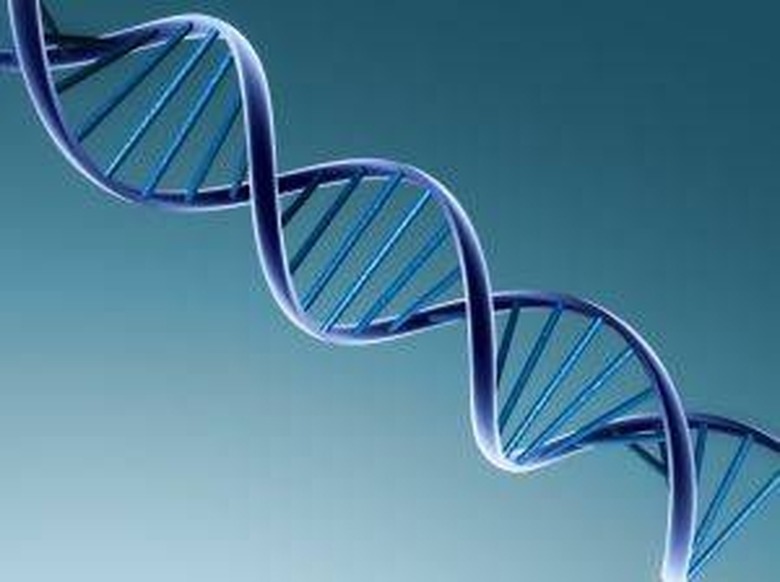How Does DNA & RNA Differ?
What are DNA and RNA?
What are DNA and RNA?
DNA and RNA are the genetic material that is found in every living cell. These compounds are responsible for cell reproduction and production of proteins necessary for life. While each of these compounds carries information coded by genes, they differ in a number of ways.
Structural differences
Structural differences
DNA stands for deoxyribonucleic acid, while RNA stands for ribonucleic acid. DNA, thus, carries a deoxyribose sugar and RNA contains a ribose sugar.
DNA is composed of several types of nitrogenous bases: adenine, thymine, cytosine and guanine. RNA contains nitrogenous bases similar to DNA, but does not contain thymine. It contains uracil instead.
Both DNA and RNA are sugars that are linked to a nitrogen compound at one end and a phosphorus group at the other. However, DNA generally consists of two strands wound together to form a double helix. RNA is typically single-stranded.
Functional difference between DNA and RNA
Functional difference between DNA and RNA
DNA is responsible for storing the genetic information and is found in the nucleus of the cell. When not in use, strands of DNA wind up tightly and form chromosomes.
RNA is found in other parts of the cell (e.g., mitochondria) and are responsible for taking information present on DNA and turning it into something functional, by coding for various proteins through the process of transcription.
For example, a strand of DNA may dictate an individual has blue-eyed genes. This information is taken from the DNA by the RNA, which is responsible for creating the blue pigment proteins necessary to express these genes.
Cite This Article
MLA
Lehman, Christine. "How Does DNA & RNA Differ?" sciencing.com, https://www.sciencing.com/dna-rna-differ-4566205/. 24 April 2017.
APA
Lehman, Christine. (2017, April 24). How Does DNA & RNA Differ?. sciencing.com. Retrieved from https://www.sciencing.com/dna-rna-differ-4566205/
Chicago
Lehman, Christine. How Does DNA & RNA Differ? last modified August 30, 2022. https://www.sciencing.com/dna-rna-differ-4566205/
